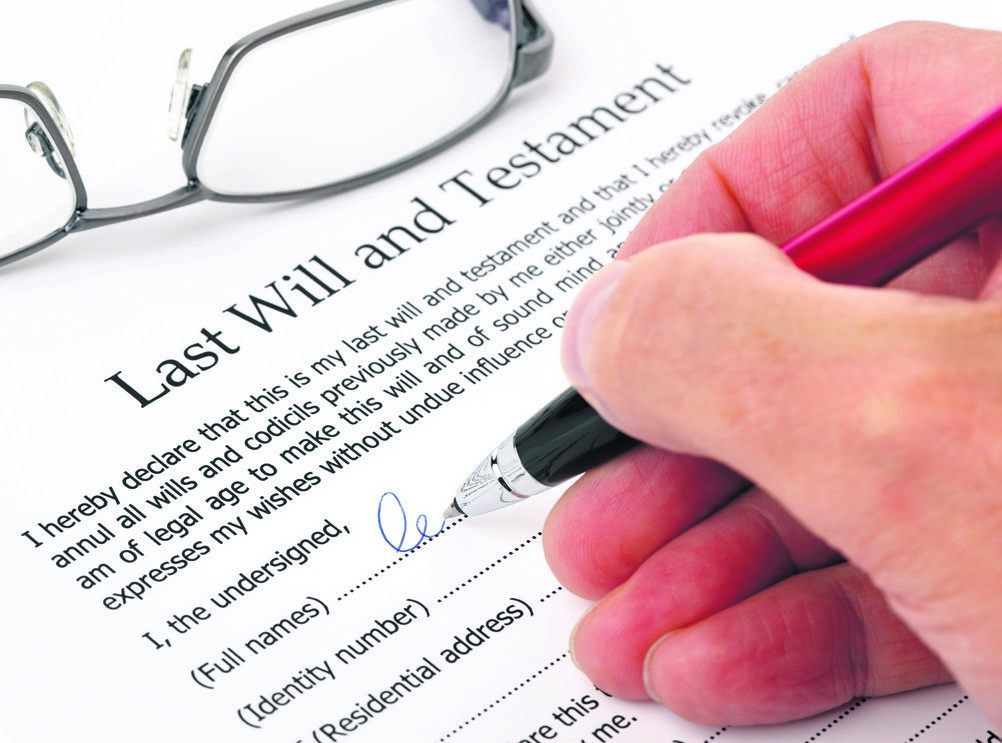
National Wills Week kicked off this week and runs until Friday. This is the perfect opportunity for you to get a basic will drafted through participating attorneys free of charge.
While the drafting of the will is free, there are specific rules regarding this offering, including that it only pertains to the drafting of a basic will. You cannot make amendments or redraft an existing will and you need to make the appointment with a participating attorney before or during National Wills Week.
Many people think they have everything under control – they save, work hard and invest. But, in many cases, people forget to draw up a will that stipulates all their wishes and has instructions on what to do with those hard-earned savings.
You may think that if you die and do not have a will (intestate), your money will be left to the “obvious” intended beneficiaries. It does not always work that way because this is where legislation will dictate where your money and other assets go.
By writing up a will, you ensure that your belongings are divided among the people who you feel need to inherit from your estate and who rely on the income that would be derived from it.
A will also enables you to ensure that the estate administration process is accelerated if you nominate an executor. If you do not appoint one, this task will be left to the master of the high court – and this process may result in delays that could take months, potentially leaving vulnerable family members without critical income.
According to Standard Bank’s standard trust division, which specialises in the administration of approved and unapproved death benefits, there are many other advantages to drafting a will:
1. Wills limit family disputes
A clear, well-written will can do much to limit the arguments that family members may have over your estate once you die. In rare cases, the courts may allow a will to be contested, but there must be a reason to believe that the will is not valid; for example, if the person who wrote the will was not of sound mind, or was unduly influenced by a third party.
2. Wills outline your wishes and how they will be executed
In addition to indicating who will receive what from your estate, a will can outline how you would like certain assets to be used.
Kobus van Schalkwyk, head of corporate development at Standard Bank Wealth, says: “For instance, you could leave your antique car to your son, stating clearly in your will that you would like him to sell the car to pay for his education. Such indications of preference are not legally binding, but they serve to make your loved ones aware of your final wishes.”
3. Children’s guardians are named in wills
If you do not specify in your will who should take care of your children if you die, the state will determine guardianship. There are no guarantees that the state will choose the person you would have selected, and it may choose someone you do not approve of.
4. You can provide for heirs with special needs
Unfortunately, incidents occur in which people die, leaving loved ones behind who are unable to care for themselves. This could happen to you. It is a reality that many parents have to come to terms with, especially if they have young dependants or loved ones with special needs. You can use your will to ensure that your assets are placed in a trust that can either limit the beneficiaries’ access until they are of a certain age, or distribute the money over a period of time.
“Such provisions can also be tailored to care for elderly relatives or those with special needs,” adds Van Schalkwyk.
The Law Society of SA says that, if you die without a will, your assets will be distributed according to the provisions of the Intestate Succession Act. The rules pertaining to this act are generally fair and, in most cases, will ensure that your assets are given to your spouse and children.
However, there are a number of drawbacks. For instance, your assets will be distributed among your surviving blood relatives, but this may not be what you actually want.
Kobus van Schalkwyk from Standard Bank Wealth says: “As an example, your entire estate may go to an estranged relative you barely know, while a well-loved friend or charity gets nothing. If you do not have any blood relatives, your assets will be forfeited to the state, without your closest friends or charitable causes benefiting or being supported.”
While drawing up a professional will can take time and, in some instances, cost you money, it is a necessary document to have – particularly if you have specific wishes regarding your assets, and you need to outline what will happen to any family members who depend on you for an income.




 Publications
Publications
 Partners
Partners








